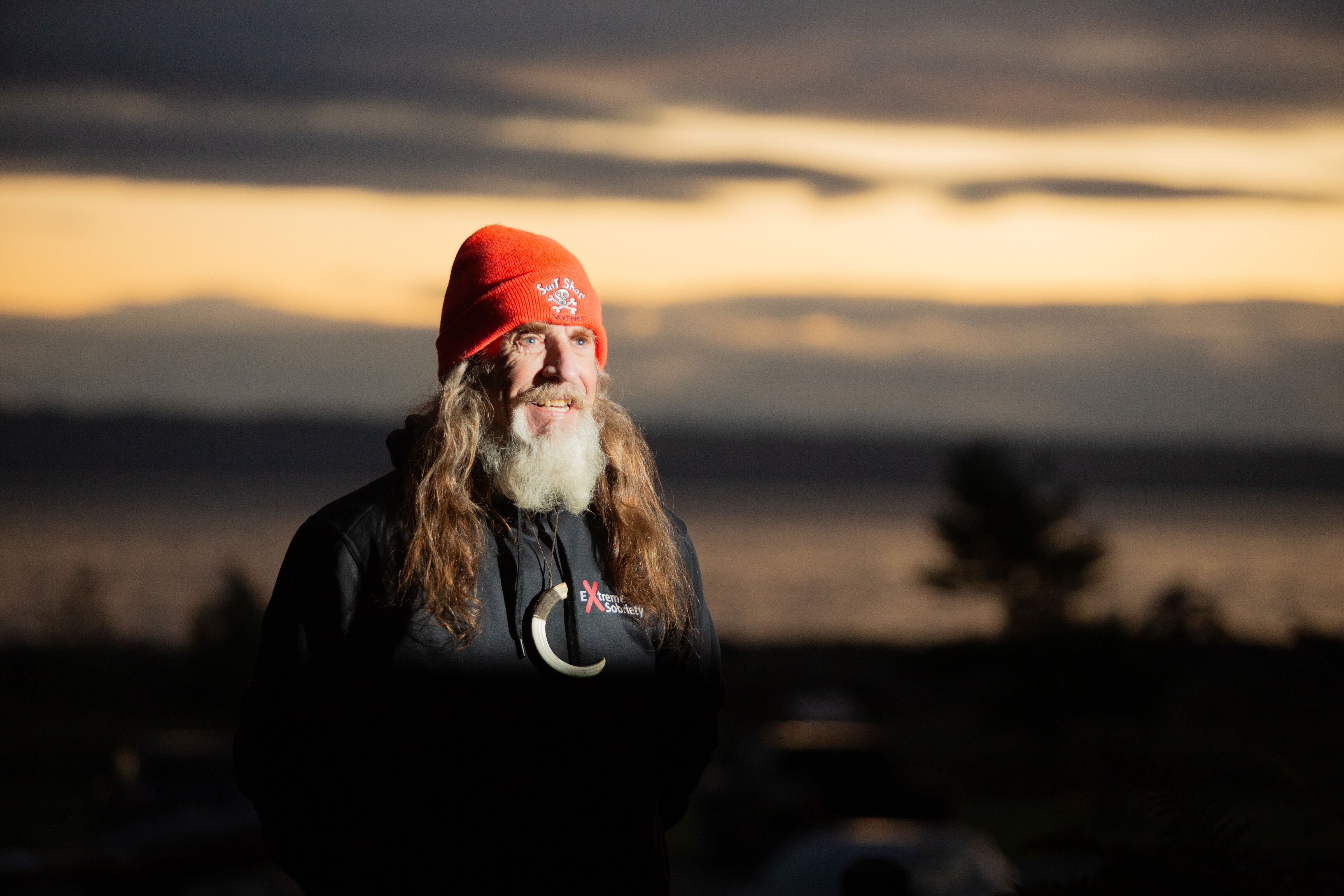City
As Homeless Advocates Denounce County's 10-Year Plan, Some Shelters Operate at 50% Capacity
Tomorrow night, homeless-advocacy groups including SHARE/WHEEL, which runs 16 shelters in King County, will declare a "State of Emergency for Homeless People in King County" denouncing the county's Committee to End Homelessness for failing to focus on shelter beds and basic housing. But even as SHARE criticized the committee for failing to provide adequate shelter, about three out of every ten shelter beds the group provides were empty on a typical January night.
In the declaration, the groups plan to denounce the county's Ten-Year Plan to End Homelessness as a "fraud" and the King County Committee to End Homelessness as a group "dominated by special interests whose goal is to convince the public that something is being done about homelessness without making any serious changes to business as usual" that "refuses to support more shelter" for the homeless; additionally, they plan to announce their intention to "Occupy the Committee to End Homelessness."
However, even as the groups are declaring an emergency and decrying a shortage of homeless shelter beds, SHARE records show that of the 16 shelters the group operates, 15 are routinely underutilized, with vacancy rates---empty beds---as high as 59 percent. Overall, SHARE records from 2011 show, the only SHARE/WHEEL shelter that typically runs at or above capacity is WHEEL's severe weather shelter for women; on average this winter, SHARE's shelters have been about 70 percent full.
In contrast, Committee to End Homelessness director Bill Block says, most shelters in King County are regularly 98 percent full---a consequence of the ongoing recession. This year's One-Night Count of the homeless in King County found 2,600 unsheltered people sleeping outside on a frigid night in January (1,900 of them in Seattle). Homelessness in King County isn't ending; if anything, it's getting worse.
In a conversation, a SHARE representative (SHARE staffers do not make on-the-record comments to the media) attributed the low occupancy rate at its shelters to the group's screening policy, which allows shelter residents (except at the severe weather shelter) to screen potential shelter users and determine which applicants they feel are safe to live with. And SHARE says their per-bed cost is substantially lower than at other shelters in the county, because they're self-managed by residents and because their shelters are extremely basic---a "bed" at a SHARE shelter is basically a blanket and a mat on the floor.
SHARE argues that basic shelter and housing is more important than services like job training, counseling, and help with addiction. In their declaration, the group says the Committee to End Homelessness has "continued to avoid the true causes of homelessness – the lack of living wage jobs, rent increases, eviction, gentrification, and the failure of the market to provide affordable housing."
"We, the homeless men and women of King County, call on those wanting to end homelessness to disavow the CEH Governing Board and the disastrous course they have set. Their poor leadership and execution of the King County’s 10 Year Plan to End Homelessness has ruined its chances for success," the declaration concludes.
The declaration is accompanied by a "report card" giving the committee a string of Cs, Ds, and F's for allegedly failing to fund additional survival services, "undermin[ing] self-help homeless groups [like SHARE] by making those groups accountable for providing long-term housing, failing to protect the ride-free area or provide free transit passes to homeless people, and failing to create living-wage jobs.
Block, who has been involved with the Ten-Year Plan since its inception in 2005, acknowledges that his group is more focused on permanent housing and "keeping people out of jails and hospitals," which does involve more services than SHARE's more basic, shelter-or-housing-first approach. And he recognizes that homelessness will not be eradicated by 2015, the ten-year mark in the "ten-year plan."
"[SHARE is] correct that we have major structural problems with poverty and the issues that are reinforcing poverty in this country," Block says. "That's an important movement, but it's a bigger movement than the ten-year plan, whose focus is on getting people into housing.
"If they are saying we still have a really massive recession and a lot of really rent-burdened people, yeah, we do."
But, Block adds, the committee has made significant progress. "We've funded 4,500 units of housing. We have transformed the lives of folks with severe disabilities. ... We've helped tends of thousands of people, and we've got the data to show that it makes a real difference in their lives."
The homeless advocacy groups will discuss their declaration at a forum starting at 7:00 tomorrow night at Tent City 3 at Seattle Pacific University's Wallace Field; the discussion, moderated by Real Change director Tim Harris, will be preceded by a community dinner at 5:30.
In the declaration, the groups plan to denounce the county's Ten-Year Plan to End Homelessness as a "fraud" and the King County Committee to End Homelessness as a group "dominated by special interests whose goal is to convince the public that something is being done about homelessness without making any serious changes to business as usual" that "refuses to support more shelter" for the homeless; additionally, they plan to announce their intention to "Occupy the Committee to End Homelessness."
However, even as the groups are declaring an emergency and decrying a shortage of homeless shelter beds, SHARE records show that of the 16 shelters the group operates, 15 are routinely underutilized, with vacancy rates---empty beds---as high as 59 percent. Overall, SHARE records from 2011 show, the only SHARE/WHEEL shelter that typically runs at or above capacity is WHEEL's severe weather shelter for women; on average this winter, SHARE's shelters have been about 70 percent full.
In contrast, Committee to End Homelessness director Bill Block says, most shelters in King County are regularly 98 percent full---a consequence of the ongoing recession. This year's One-Night Count of the homeless in King County found 2,600 unsheltered people sleeping outside on a frigid night in January (1,900 of them in Seattle). Homelessness in King County isn't ending; if anything, it's getting worse.
In a conversation, a SHARE representative (SHARE staffers do not make on-the-record comments to the media) attributed the low occupancy rate at its shelters to the group's screening policy, which allows shelter residents (except at the severe weather shelter) to screen potential shelter users and determine which applicants they feel are safe to live with. And SHARE says their per-bed cost is substantially lower than at other shelters in the county, because they're self-managed by residents and because their shelters are extremely basic---a "bed" at a SHARE shelter is basically a blanket and a mat on the floor.
SHARE argues that basic shelter and housing is more important than services like job training, counseling, and help with addiction. In their declaration, the group says the Committee to End Homelessness has "continued to avoid the true causes of homelessness – the lack of living wage jobs, rent increases, eviction, gentrification, and the failure of the market to provide affordable housing."
"We, the homeless men and women of King County, call on those wanting to end homelessness to disavow the CEH Governing Board and the disastrous course they have set. Their poor leadership and execution of the King County’s 10 Year Plan to End Homelessness has ruined its chances for success," the declaration concludes.
The declaration is accompanied by a "report card" giving the committee a string of Cs, Ds, and F's for allegedly failing to fund additional survival services, "undermin[ing] self-help homeless groups [like SHARE] by making those groups accountable for providing long-term housing, failing to protect the ride-free area or provide free transit passes to homeless people, and failing to create living-wage jobs.
Block, who has been involved with the Ten-Year Plan since its inception in 2005, acknowledges that his group is more focused on permanent housing and "keeping people out of jails and hospitals," which does involve more services than SHARE's more basic, shelter-or-housing-first approach. And he recognizes that homelessness will not be eradicated by 2015, the ten-year mark in the "ten-year plan."
"[SHARE is] correct that we have major structural problems with poverty and the issues that are reinforcing poverty in this country," Block says. "That's an important movement, but it's a bigger movement than the ten-year plan, whose focus is on getting people into housing.
"If they are saying we still have a really massive recession and a lot of really rent-burdened people, yeah, we do."
But, Block adds, the committee has made significant progress. "We've funded 4,500 units of housing. We have transformed the lives of folks with severe disabilities. ... We've helped tends of thousands of people, and we've got the data to show that it makes a real difference in their lives."
The homeless advocacy groups will discuss their declaration at a forum starting at 7:00 tomorrow night at Tent City 3 at Seattle Pacific University's Wallace Field; the discussion, moderated by Real Change director Tim Harris, will be preceded by a community dinner at 5:30.




